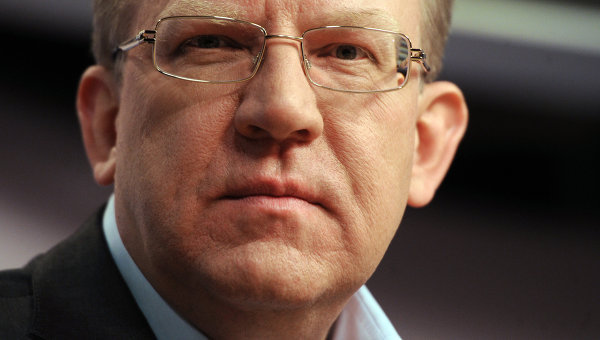MOSCOW, March 19 - RAPSI. Russia’s former finance minister, Alexei Kudrin, said on Tuesday that plans by Cyprus to force all savers to agree to a levy on their deposits ignored the interests of Russian investors.
“This is a unilateral decision, without the participation of other creditors. As far as I know, there are no full-fledged negotiations on this score,” said Kudrin, Russia's finance minister from 2000-2011.
The controversial tax, which would institute a charge of 6.75 percent on deposits of less than 100,000 euros and 9.9 percent on deposits with greater amounts, is part of a bailout deal forced by the EU and the IMF on the island nation in return for much-needed rescue funds.
International creditors have said their 10 billion euro ($13 billion) rescue package for debt-laden Cyprus is contingent on a one-off deposit levy to yield an additional 5.8 billion euros ($7.5 billion) in revenues for the Cyprus budget.
The Cypriot government’s plans to impose the levy also evoked an angry response from Russian President Vladimir Putin on Monday. Putin called the decision “unfair, unprofessional and dangerous” while Prime Minister Dmitry Medvedev compared the measure to “a confiscation of someone else’s money.”
Russian banks and companies have favored Cyprus since the 1990s, taking advantage of the island nation’s low taxes and easy business regulations. Russian banks held about $12 billion on deposit with Cypriot banks at the end of 2012 while Russian corporate deposits accounted for another $19 billion, according to estimates by Moody’s international rating agency.
Kudrin said some write-down on Cypriot bank deposits was inevitable but the scheme should be agreed with all the depositors similar to the Greek debt write-off.
“As for the Cyprus problem, for which a solution has to be found, a partial write-off meaning some deposit loss is practically inevitable,” Kudrin said, adding any debt restructuring would always be unfair but there was no other way out.
“I believe that if there is a 10 percent loss, then all the depositors can breathe freely … because otherwise … losses would be considerably larger,” Kudrin said.
Russian individuals and businesses may lose around $2 billion, if the Cypriot government goes ahead with the levy proposal. But if the island nation defaults on its obligations, Russian depositors risk losing over $50 billion, considering loans granted by Russian banks to Cyprus-registered companies, according to Moody's credit rating agency.
Kudrin said financial aid of over 7 billion euros could resolve the Cypriot economy’s woes.
“Of those sums that are mentioned … an amount of over 7 billion euros could resolve Cyprus’ problems – this is the problem of the Cypriot state,” Kudrin said, adding another several billion euros were required to help recapitalize local banks that had been forced to write-down billions of euros in “voluntary” Greek debt restructuring.
Kudrin also warned that the Cyprus problem concerns not only the island nation, but may explode in Europe, aggravating the consequences of the eurozone sovereign debt crisis.
“Bad news for all: for Europe, the world and Russia,” he said.
Cyprus Finance Minister Michalis Sarris is heading for Moscow on Tuesday, with talks likely to focus on conditions under which Russia could help Cyprus resolve its financial problems, and the possibility of extending the Russian 2.5 billion euro loan for another five years.
In 2011, Russia granted Cyprus 2.5 billion euros in loans at a below-market rate of 4.5 percent to help the eurozone member state service its debt. Last year, Cyprus asked Russia for a fresh five billion euro loan to partially cover its budget deficit and extend the 2011 loan for another five years.
A longtime member of Valdimir Putin's administration, Kudrin, 51, resigned as finance minister and deputy prime minister last year following a public row with President Dmitry Medvedev over budget issues including rising defense spending.



